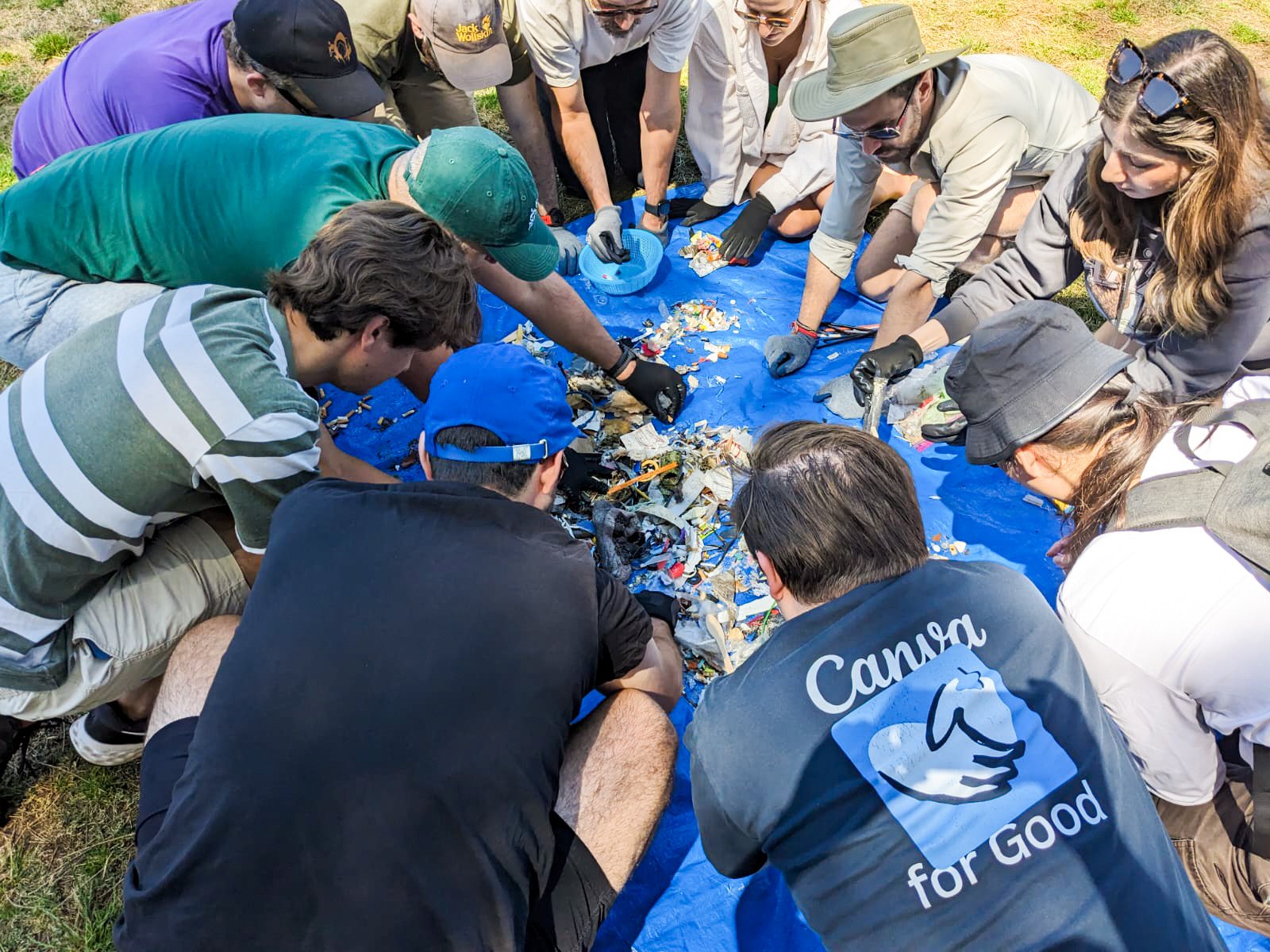From Convenience to Crisis: How Plastic is Impacting Our World
Since plastic was first popularised in the late 1950s, its environmental toll has been largely underestimated. Initially hailed as a miracle material, its widespread use has come at a significant cost. The oil and gas companies that first introduced plastic promised a sustainable, infinitely recyclable solution, claiming it would be better for the planet than paper. This flexible, durable, and waterproof material quickly replaced glass, aluminium, paper, and natural fabrics. Today, we are witnessing the full extent of its impact—an environmental crisis we are only beginning to understand.
It’s now common knowledge that plastics last hundreds of years in the environment, and rather than ever completely breaking down, they only break up into smaller and smaller pieces.
Microplastics have infiltrated our ecosystems and bodies, with traces found in nearly every sample of human muscle tissue, brain tissue, blood, placenta, and even breast milk. The Guardian even reported plastics found in dolphin breath. Don’t ask us how they sample that!!!
The Waste Crisis
Waste generation in Sydney is so profuse that we are literally running out of space to put it. When faced with the same alarming prediction in the early 1990s, Germany responded by introducing The Green Dot and Dual System. The system enforces manufacturers to pay fees based on the amount and type of packaging they produce and requires the producers and retailers to be responsible for disposal and recovery of their packaging. As a result, manufacturers are choosing to optimise their packaging, significantly reducing the amount of packaging being produced. Not only this, but recycling rates are at an all time high - from 3% in 1991 compared to 67% now!
There are Australian Organisations already out there doing incredible work. Check out SAM For Change: a movement by Samsara Eco, a company that has developed enzymes that can infinitely recycle plastic! So cool!
The Problem with Convenience
In our fast-paced world, convenience often trumps sustainability. The average single-use plastic item is used for only 12 seconds before being discarded. Despite the fact that over 80% of plastics are recyclable, only 9% of plastic waste is recycled globally, and in Australia, it’s slightly better at 12%. The real challenge? Even high-quality plastics can only be recycled up to 10 times before they degrade. Recycling alone won’t solve the crisis. Materials like metals and paper, which are easier to sort, have a much higher recycling rate, so it's essential to get them in the right bins.
Reshaping Waste: More Than Recycling
YYou might be asking, “Isn’t Reshaping Waste just about recycling?” While recycling is part of what we do, our primary mission is education. Through our work, we raise awareness of the Circular Economy—transforming plastic waste into a resource rather than seeing it as garbage. We also emphasize proper recycling practices, ensuring that the plastics we do recycle are processed correctly.
Our goal is to empower communities to take action now. While we won’t single-handedly solve the plastic crisis, we believe that collective action can make a significant difference. Through five years and over 4,500 hours of beach cleanups, we’ve seen firsthand how education can spark change. When people are informed, they share what they’ve learned, creating a ripple effect that spreads through their networks.
Taking Action Together
It's easy to point fingers at governments or corporations for their slow response, but the truth is, time is running out, and we all need to act. Rather than waiting for policies to change, we must take personal responsibility for minimizing our own plastic waste. As community members who know better, we must focus on educating others and creating solutions at the local level.
This is a chance for us to work together, leveraging the technologies we have and sharing knowledge to drive meaningful change.
Pittwater Eco Adventures beach clean up event
Join the Conversation
We look forward to bringing you our bi-monthly blog Thank you for reading! We’re excited to bring you bi-monthly blog posts covering topics on sustainability, plastic education, mindfulness, and more. This is a space for deeper discussions, and we’d love to hear your thoughts and ideas. Find us on social media to continue the conversation!
Thanks for tuning in!
Bergia, Katie & the Team x
Where to go next?
Join one of our beach clean ups or book one of our Reshaping Waste workshops
https://www.pittwaterecoadventures.com.au/get-in-touch
Get up to speed with the Northern Beaches Rubbish and Recycling Info https://www.northernbeaches.nsw.gov.au/services/rubbish-and-recycling
Get to know SAM For Change
https://www.samforchange.com/who-is-sam
Learn more about The Green Dot System
https://www.gruener-punkt.de/en/


